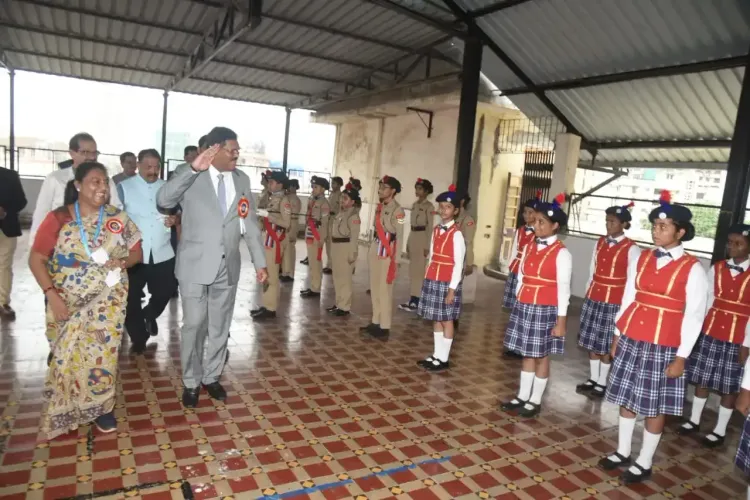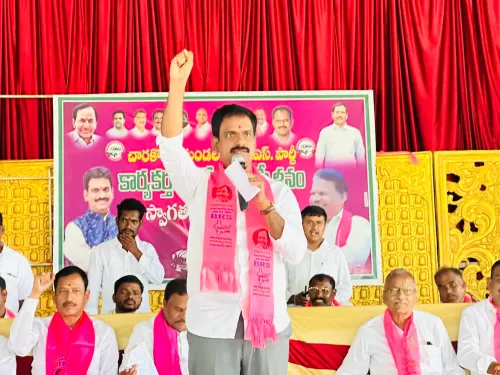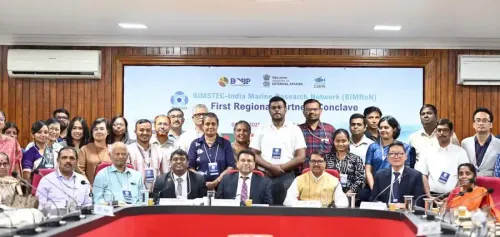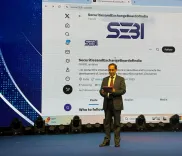How Did Marathi Medium Enhance CJI Gavai's Understanding?

Synopsis
Key Takeaways
- CJI Gavai's emotional connection to his education.
- The impact of mother tongue education on conceptual understanding.
- A tribute to the teachers who shaped his early life.
- The significance of cultural identity in education.
- Insights into CJI Gavai's notable legal contributions.
Mumbai, July 6 (NationPress) Chief Justice of India B.R. Gavai became emotional while reflecting on achieving his father's aspiration of becoming a judge. He emphasized the importance of studying in his native Marathi language, asserting that it significantly enhanced his conceptual understanding.
During a virtual address at a lawyers' event in Maharashtra, the CJI nearly shed tears as he expressed, “I am delighted that my father’s wish for me to become a judge has been realized.”
As the first Buddhist to hold this prestigious position, he fondly recalled his father and his initial experiences in the legal field during the 161st-anniversary celebration of the Advocates Association of Western India (AAWI), an organization he became a member of in 1983.
On the same day, the CJI visited Chikitsak Samuh Shirodkar School in Girgaon, reminiscing about his formative years. Having completed his primary and secondary education at this institution, he expressed profound gratitude towards the teachers who influenced his early life.
While at the school, Chief Justice Gavai stated, “The achievements I have today can be attributed to my teachers and this school. The education and values I absorbed here guided my life.”
“My journey into public speaking commenced on this stage. Participation in speech contests and cultural events bolstered my confidence. Those experiences have shaped who I am today,” he reflected.
The CJI remarked, “My education in a Marathi-medium school has been invaluable. Learning in one’s mother tongue fosters better conceptual understanding and instills lifelong values.”
Justice Gavai explored the classrooms, library, and art section of the school, engaging warmly with former classmates and reliving cherished memories. The heartfelt tribute from the students was a deeply emotional moment for him, marking his visit as a significant honor and source of inspiration for the school.
Among those present were Maharashtra’s Skill Development Minister and Mumbai City Guardian Minister Mangal Prabhat Lodha, Bombay High Court Justice Madhav Jamadar, Chikitsak Samuh President Kishore Rangnekar, Secretary Dr. Gurunath Pandit, Principal Sanchita Gawde, and other dignitaries.
Justice Gavai comes from a notable lineage. His father, Ramakrishna Suryabhan Gavai, was a distinguished Ambedkarite leader and the founder of the Republican Party of India (RPI).
Known affectionately as Dadasaheb, the elder Gavai served as a Lok Sabha member from Amravati and held the positions of Governor of Bihar, Sikkim, and Kerala from 2006 to 2011 under the Congress-led UPA administration. He passed away in 2015, four years prior to his son's elevation to the Supreme Court.
Justice Gavai was appointed as a Judge of the Supreme Court on May 24, 2019.
In the six years leading to his elevation, he was part of approximately 700 Benches addressing a broad range of subjects, including constitutional and administrative law, civil law, criminal law, commercial disputes, arbitration law, electricity law, education matters, and environmental law.
He has authored around 300 judgments, including those from the Constitution Bench on various issues, upholding the rule of law and protecting fundamental rights, human rights, and the legal rights of citizens.
Justice Gavai began his career as an Additional Judge of the Bombay High Court in November 2003 and became a permanent Judge in November 2005.









